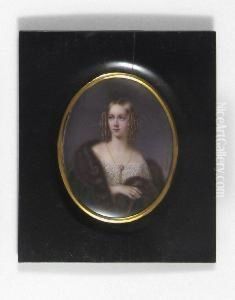Johann Wenzel Kraus Paintings
Johann Wenzel Kraus, also known as Jan Václav Kraus or Giovanni Venceslao Kraus, was a Bohemian composer and conductor who contributed to the musical scene of the late 18th and early 19th centuries. Born in Prague, Bohemia (now the Czech Republic) in 1756, Kraus was part of the rich cultural landscape that characterized the region during this period.
Kraus’s musical education began in his hometown, where he was exposed to the vibrant musical traditions of Bohemia. He later moved to Vienna to study law, as per the wishes of his father. However, his passion for music prevailed, and he eventually dedicated himself to the study of composition and conducting. Vienna, being a hub of musical activity with figures like Mozart and Haydn, provided Kraus with an environment ripe for artistic growth.
While not as widely known as his contemporaries, Kraus made a significant impact in his time. He was especially recognized for his operatic works, which were influenced by the classical Viennese style but also showcased a distinct sensibility that was informed by his Bohemian roots. His music is characterized by melodic inventiveness and often reflects the transitional phase between the Classical and Romantic periods.
Kraus's career was mostly spent in the service of nobility, which was common for composers of his era. He held various positions, including Kapellmeister (music director) to different aristocratic patrons. Despite his relatively obscure status today, in his lifetime he was respected by peers and music critics alike for his contributions to the musical world.
Johann Wenzel Kraus passed away in 1825, leaving behind a body of work that, while not as prolific or influential as some of his peers, still represents an important facet of the classical music tradition. His compositions, which include symphonies, chamber music, and vocal works, provide insight into the stylistic transitions and cultural exchanges of his time.
